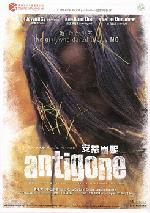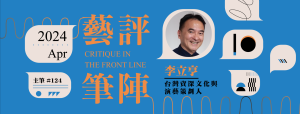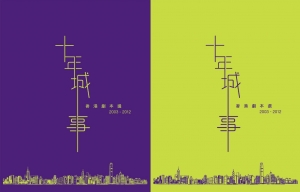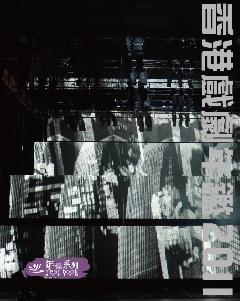 |
Sophocles' Antigone was one of the first plays I read in college. The Greek tragedy unfolded itself with fearsome impact that struck me with great awe. I always believe Creon and Antigone best represent the irreconcilable conflict between the state and the individual. If Oedipus the Rex often appears to be mythical and fatalistic, Antigone, however, is more realistic and sincere. Inspired by Sophocles, Jean Anouilh's play adapts the same story but is uniquely different and refreshing: the use of trendy modern terms brings the ancient characters closer to the contemporary audience; one narrator takes up the roles of both the chorus and the prophet Tiresias; and most important of all, in his times, Anouilh's play was a parable of two major attitudes towards Nazi's governance.
Curious to see how Theatre du Pif's artists would make of this timeless tragedy and the French playwright's classic adaptation, I went into the studio theatre of Hong Kong Cultural Centre with pure excitement.
Instead of warming up backstage, the actors and actresses stretched their legs, cleared their voice and repeated most difficult lines in front of the audience. Occasionally, they greeted each other with smiles and nods. It was difficult to tell if they were trying to engage the audience more or to bring newer elements to a Greek tragedy. In fact, this beginning resembles that of a fairly recent contemporary dance performance.
Unlike the original Sophocles' play, in which the main characters slowly unveil themselves in a plot-driven manner, in this version, characters and their fate are introduced and analyzed right at the very beginning. I was particularly impressed by Sean Curran's narrator, as he was charming, articulate and funny. He rose from the audience and led us all the way through the play, making insightful, witty comments and in the meantime playing the role of a foreseer. He was wearing a suit, deliberately trying to distinguish himself from the rest of the actors. Curran was also speaking as if he were part of the audience, making fun of characters from time to time. One of the memorable comments he made was "Ismene is surely hotter than Antigone."—it gave the heavy play a touch of humor.
As I mentioned, Anouilh's play doesn't particularly emphasize on the plot. The play's success relies hugely on Creon and Antigone, and the presentation of their central conflict. Lee Chun-chow's Creon was powerful and firm, reasonable and human. His articulation and flow of emotion were natural. A loving uncle and a responsible ruler, Creon's characteristics were grasped accurately. Compared to him, Bonni Chan's Antigone was weak and disappointing. Her way of presenting Antigone's insistence on burying her brother was superficial and unconvincing. By shouting and screaming at Creon, she failed to engage the audience and make them sympathetic. Ms. Chan's high-pitched voice sometimes became unbearable. The supposedly admirable Antigone became rather a whiny and childish girl whose decision was utterly built on impulse and emotion.
Because of this imbalance in acting, the play doesn't raise the question the theatre group probably wanted to ask: How does Antigone resemble Hong Kong and Creon the central government?
Hong Kong artists complain about Hong Kong audience, saying that they lack the ability to appreciate tragedy. I remember one theatre critic states that Hong Kong people love comedies since they need pure entertainment to let out the stress of life. That's why comedies are much well-received and easier to sell. Such comments seem a bit harsh on the local audience. Sometimes, it occurs to me that Hong Kong artists are not capable of producing powerful "catharsis" to involve their audience and hence it is they who fail tragedy.
I also have my doubts about the switch between two English and Cantonese throughout the play. According to the director, the language choice arose organically. At first, I thought characters of lower classes used Cantonese-- the nanny, the soldier and the messenger. Yet, Antigone also used Cantonese from time to time, unpredictably. The choice of language was rather random. Maybe Theatre du Pif needs to work out a way to persuade people their logic behind bilingual performance.
In a word, Antigone may be an interesting theatre experience for audience, but it is not necessarily a success.
本網站內一切內容之版權均屬國際演藝評論家協會(香港分會)及原作者所有,未經本會及/或原作者書面同意,不得轉載。









